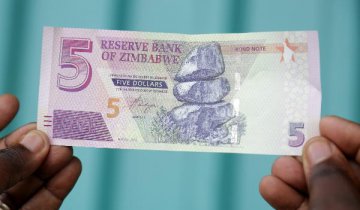
Franklin Templeton Investments says the rout in emerging markets may be nearing a bottom though reckons there are still countries like the Philippines that will suffer.
Given the uncertainty, the money manager is keeping a net neutral dollar position, while making trades including shorting the Philippine peso, as well as betting the Aussie will decline against the New Zealand dollar, said Chris Siniakov, managing director of fixed income for Australia at Templeton.
The rout in emerging-market assets this year was spurred by higher Treasury yields and U.S. tax cuts, alongside angst over the escalation of trade restrictions between the U.S. and China. Still, Templeton’s willingness to sit out a directional bet on the dollar highlights how divided money managers are after the greenback has gained more than 5 percent since mid-April.
JPMorgan Asset Management and Man Group Plc are among those expecting further strength. Others such as DoubleLine Capital’s Jeffrey Gundlach see a decline by year’s end.
That’s not deterring speculative investors such as hedge funds that are still betting on further dollar gains, data from the Commodity Futures Trading Commission show.
It could go either way, Siniakov said. The dollar might appreciate more if investors continue to seek haven assets amid worsening U.S. and China trade relations, though it may be weaker if the U.S. economy starts to overheat and the chance of a slowdown starts to weigh on investors’ minds, he said.
“For us here locally we’re focusing on the Asia region, it’s about countries that are in a better fiscal position, good domestic stories and good policy actions by their leaders,” said Siniakov. Some emerging markets, including Turkey and Indonesia will continue to see pressure, he said.
The core of Templeton’s fixed-income portfolio consists of investment-grade corporate bonds, he said.
Below are excerpts of an interview with Siniakov and Andrew Canobi, director of fixed income for Australia at Templeton, the California-based money manager, which oversees $722 billion in assets:
Why short the Aussie?
We’re looking at an Australian dollar range of 70 to 75 U.S. cents for now. The Aussie dollar is being driven lower not by domestic factors, even though the property market headlines have some offshore investors shorting the Aussie. It’s a risk currency that’s caught up in the emerging market malaise. Until those issues go away, the path for the Aussie is likely lower.
On the other hand, New Zealand’s economy is not in bad shape. The market’s gone from a tightening bias to now a little bit of easing. The kiwi dollar suffered because of that. We still think the hurdle’s pretty high for an easing. We see the Aussie potentially trading at around 106 against the Kiwi.
Have we seen the end of the emerging market rout?
We are closer to a bottom, although I don’t know that we’ve seen a real capitulation in emerging markets. There’s been pressure, but in some ways it’s been orderly.
What’s your view on the Fed?
The market’s priced for maybe 2.5 interest-rate hikes in the U.S. over the next 12 months. We think the most important metric is going to be financial asset prices -- as long as they remain stable, the Fed is emboldened to keep lifting rates.
Source: Bloomberg























Latest comments